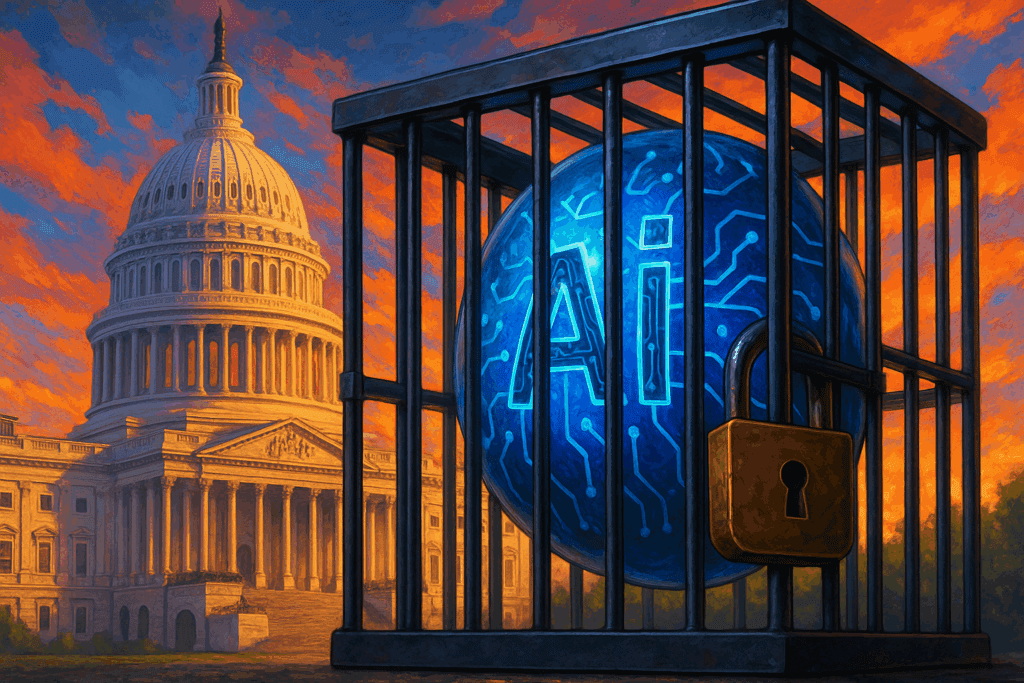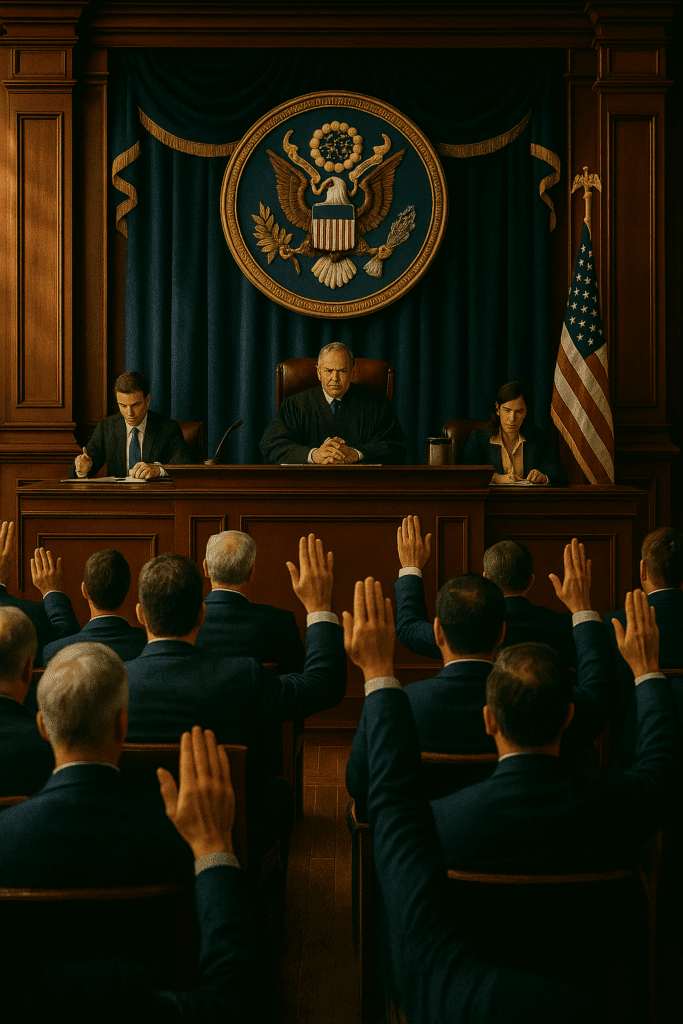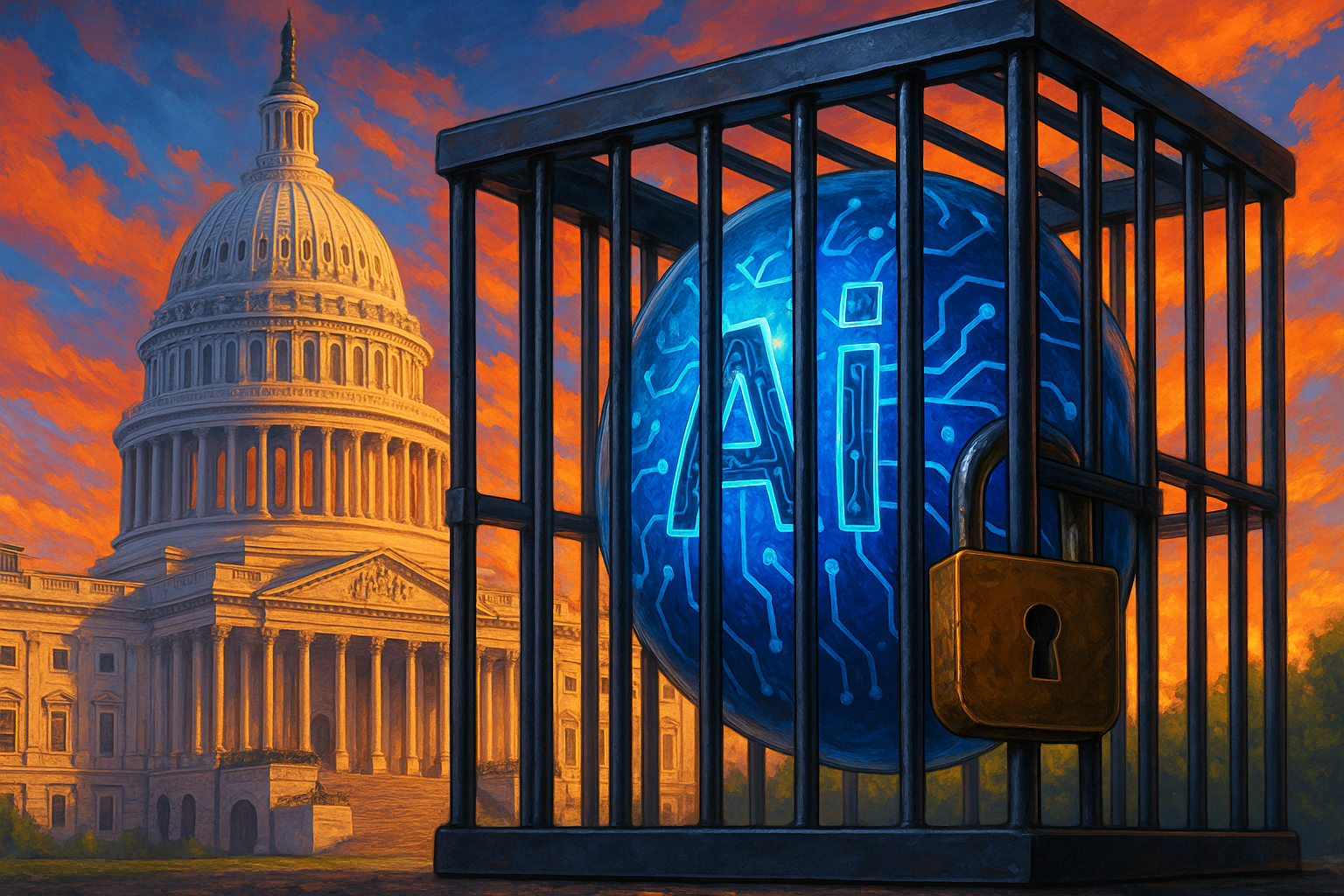Regulating AI—or Silencing the States?
As the United States races to establish a competitive edge in artificial intelligence, a controversial provision buried in a federal budget package has sparked intense debate. The proposal: a 10-year moratorium on state-level AI legislation.
Supporters of the provision, passed by the House under the “One Big Beautiful Bill Act,” argue that it will prevent a fragmented regulatory landscape that could stifle innovation. But critics—including Vengo AI—see this as a dangerous overreach that prioritizes corporate interests over public accountability.
Fortunately, new developments suggest that momentum is building to challenge or potentially reverse this sweeping limitation.

Photo by: Vengo AI
What the Moratorium Means
The original House provision would prohibit states from enacting or enforcing their own AI regulations for a full decade. This includes laws intended to:
-
Prevent deepfake abuse and algorithmic misinformation
-
Limit algorithmic bias in housing, hiring, and lending
-
Establish safety and transparency standards for facial recognition
-
Protect children from manipulative and addictive algorithmic content
Effectively, it would silence all 50 states on one of the most transformative technologies of our time.
What’s Changed This Week
1. Senate Rewrites the Provision—but Keeps the Pressure On
The Senate version reframes the moratorium as a condition tied to broadband funding. In other words, states that pursue their own AI rules could lose access to critical infrastructure dollars. While not an outright ban, the new language still creates a chilling effect on local AI governance.
2. Senator Ed Markey Leads Repeal Effort
Sen. Ed Markey (D-MA) is preparing an amendment to strike the moratorium entirely from the bill. Calling it a “backdoor ban,” he joins a growing coalition arguing that federal oversight should not come at the expense of democratic process or local protections.
3. Bipartisan Pushback from State Lawmakers
A bipartisan group of over 260 state legislators from every U.S. state has formally petitioned Congress to remove the provision. They argue that state-level innovation is essential for developing effective, responsive AI governance.
4. Senate Parliamentarian Review Underway
The Senate Parliamentarian is currently reviewing whether the moratorium violates the Byrd Rule, which restricts what policies can be included in a budget reconciliation bill. If the moratorium fails this test, it could be stripped automatically.

Photo by: Vengo AI
Why Vengo AI Opposes the Moratorium
At Vengo AI, we strongly support responsible innovation. We also believe in a multi-level approach to governance. States have historically led the way in shaping effective consumer protection laws—especially when federal legislation lags behind technological change.
A moratorium of this scale would:
-
Delay meaningful safeguards for vulnerable communities
-
Reduce pressure on Congress to enact comprehensive federal AI regulation
-
Concentrate power in the hands of a few corporations, without accountability
-
Undermine the adaptability and responsiveness of state governments
This isn’t just about regulation—it’s about democracy, safety, and the public’s role in shaping the future of AI.
What Comes Next
The coming weeks will be critical. Watch for:
-
Whether Sen. Markey’s amendment advances
-
The Senate Parliamentarian’s ruling under the Byrd Rule
-
Any revisions or negotiations between the House and Senate versions of the bill
In the meantime, businesses, civil society, and voters must continue to call for balanced, ethical, and transparent AI policies—not broad bans that eliminate oversight.
Final Thoughts
The future of AI will not be determined solely by algorithms, but by the frameworks we build around them. A decade-long ban on state authority is not a solution—it’s a retreat from democratic responsibility.
We urge Congress to reconsider. True innovation isn’t just fast—it’s accountable.

